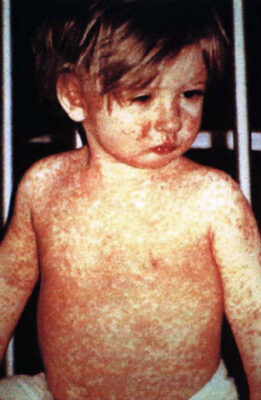By Levon Karamanoukian
YEREVAN — According to health data released by the Ministry of Health of the Republic of Armenia, the rise in confirmed cases of measles this year may signal early warning signs of an imminent measles outbreak in the territory of Armenia and Artsakh Republic.
Between January 1 and March 13, 2023, there have been 50 laboratory-confirmed cases of measles in the Republic of Armenia, with data showing that roughly two-thirds of cases occurring in young patients under 16 years old.
Measles are considered a vaccine-preventable disease by the World Health Organization (WHO) and Armenia follows WHO guidelines for childhood vaccination. Surveillance data by the WHO and Unicef report that measles vaccine prevalence among 12-23 month old children in Armenia was 94% in 2021, but actual field data in Armenia, released by researchers at Uppsala University in Sweden, report that the prevalence of vaccines among children in Armenia may actually be below 80%. This discrepancy may be due to failures in administrative reporting errors among health officials in Armenia.
The Centers for Disease Control and Prevention (CDC) recommend that children receive two doses of MMR (measles-mumps-rubella) vaccines; the first one between 12 to 15 months of age and the second between 4 and 6 years. “This is a highly preventable disease,” notes Los Angeles Pediatrician Jay Gordon, “as the first dose of MMR vaccine is 93% effective against measles. Once you receive two doses, it is 97% effective against the disease.”
“We are seeing global outbreaks throughout the world,” adds Pediatrician Sonya Sethi. “The CDC has reported an alarming 47,979 cases between August 2022 and January 2023 in India alone. It’s imperative that the battle to control this vaccine-preventable disease in Armenia is achieved by increasing the vaccination status of the population,” she adds.








